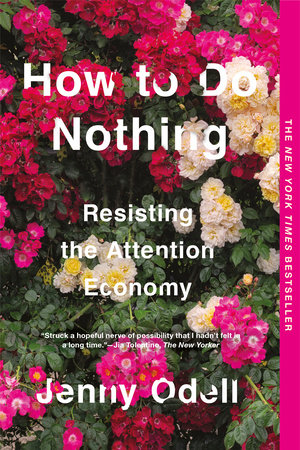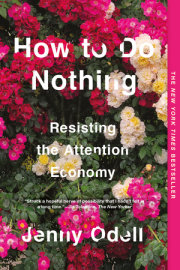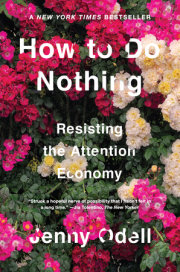How to Do Nothing: Resisting the Attention Economy
Chapter 2 The Impossibility of Retreat
A lot of people withdraw from society, as an experiment…So I thought I would withdraw and see how enlightening it would be. But I found out that it’s not enlightening. I think that what you’re supposed to do is stay in the midst of life.
–AGNES MARTIN
If doing nothing requires space and time away from the unforgiving landscape of productivity, we might be tempted to conclude that the answer is to turn our backs to the world, temporarily or for good. But this response would be shortsighted. All too often, things like digital detox retreats are marketed as a kind of “life hack” for increasing productivity upon our return to work. And the impulse to say goodbye to it all, permanently, doesn’t just neglect our responsibility to the world that we live in; it is largely unfeasible, and for good reason.
Last summer, I accidentally staged my own digital detox retreat. I was on a solitary trip to the Sierra Nevada to work on a project about the Mokelumne River, and the cabin I had booked had no cell reception and no Wi-Fi. Because I hadn’t expected this to be the case, I was also unprepared: I hadn’t told people I would be offline for the next few days, hadn’t answered important emails, hadn’t downloaded music. Alone in the cabin, it took me about twenty minutes to stop freaking out about how abruptly disconnected I felt.
But after that brief spell of panic, I was surprised to find how quickly I stopped caring. Not only that, I was fascinated with how inert my phone appeared as an object; it was no longer a portal to a thousand other places, a machine charged with dread and potentiality, or even a communication device. It was just a black metal rectangle, lying there as silently and matter-of-factly as a sweater or a book. Its only use was as a flashlight and a timer. With newfound peace of mind, I worked on my project unperturbed by the information and interruptions that would have otherwise lit up that tiny screen every few minutes. To be sure, it gave me a valuable new perspective on how I use technology. But as easy as it was to romanticize giving everything up and living like a hermit in this isolated cabin, I knew I eventually needed to return home, where the world waited and the real work remained to be done.
Copyright © 2019 by Jenny Odell. All rights reserved. No part of this excerpt may be reproduced or reprinted without permission in writing from the publisher.





